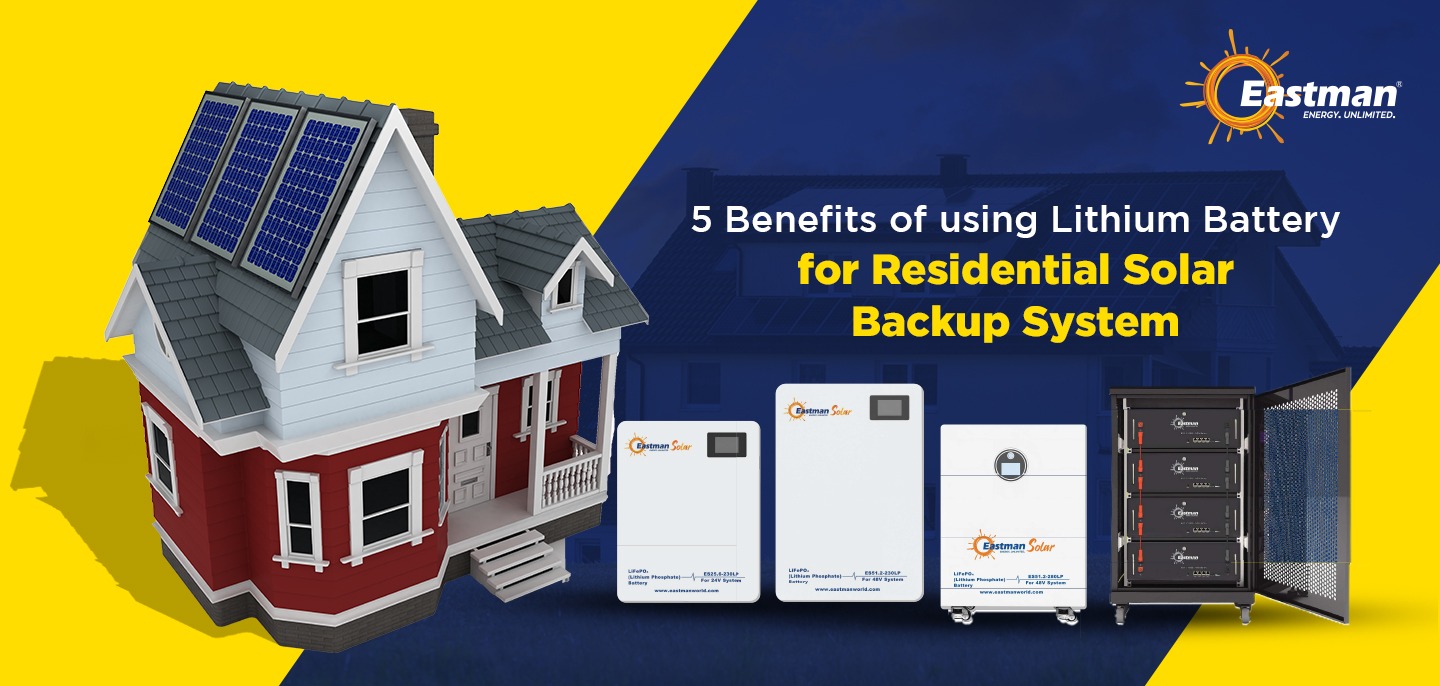
5 Benefits of using Lithium Battery for Residential Solar Backup System
Solar energy is a popular choice for homeowners looking to reduce energy costs and their environmental footprint. However, harnessing solar power effectively requires a reliable storage solution to ensure energy availability when the sun isn’t shining. Lithium batteries are becoming the preferred choice for residential solar backup systems, thanks to their unique benefits. Here’s a look at why lithium batteries are an ideal partner for solar energy storage:
1. Extended Battery Life
Lithium batteries offer an impressive lifespan compared to traditional lead-acid batteries, typically lasting 10-15 years with thousands of charge and discharge cycles. This durability ensures that homeowners get the most out of their investment, as they won’t need to frequently replace their batteries. Longer battery life not only reduces long-term costs but also minimizes maintenance needs, making it a low-hassle solution for solar backup.
2. High Energy Density for Space Efficiency
Lithium batteries are known for their high energy density, allowing them to store substantial energy in a compact form. This makes them especially advantageous for homes with limited space. For example, a lithium battery system can store the same amount of energy as a lead-acid system in a much smaller physical footprint. This compact design enables easy integration into residential spaces and maximizes energy storage without taking up significant room.
3. Efficient Energy Use
Efficiency is crucial in a solar backup system, where stored energy needs to be preserved as much as possible. Lithium batteries typically offer round-trip efficiencies of 90-95%, meaning that most of the stored solar energy is available for use when needed. In contrast, lead-acid batteries often have lower efficiency rates, resulting in more energy loss. Lithium’s high efficiency optimizes solar energy storage, allowing homeowners to make the most of their solar power, even during low sunlight periods.
4. Fast Charging Capabilities
Lithium batteries charge faster than many other types of batteries, which is especially beneficial in solar applications. During limited sunlight hours, quick charging ensures the battery can store as much energy as possible. Lithium’s rapid charging capability also means it can be recharged multiple times throughout the day if needed, which can be useful in areas with variable sunlight. This adaptability helps maximize the power available for nighttime or cloudy days, boosting overall energy security.
5. Eco-Friendly and Sustainable
Lithium batteries are not only efficient but also more environmentally friendly compared to traditional options. They don’t require frequent replacement, which helps reduce battery waste over time. Additionally, many lithium batteries are designed with recyclability in mind, allowing for sustainable end-of-life disposal. By choosing lithium batteries, homeowners can support their commitment to sustainable living and minimize their environmental impact, aligning well with the broader benefits of using solar energy.
Conclusion
As solar adoption grows, choosing the right battery technology is crucial for homeowners who want reliable, efficient, and eco-friendly energy storage. Lithium batteries provide multiple benefits, from long lifespan and high energy density to fast charging and sustainability. With these advantages, lithium batteries stand out as a smart, future-ready investment in solar backup systems that empower homeowners to be energy-independent and sustainable.